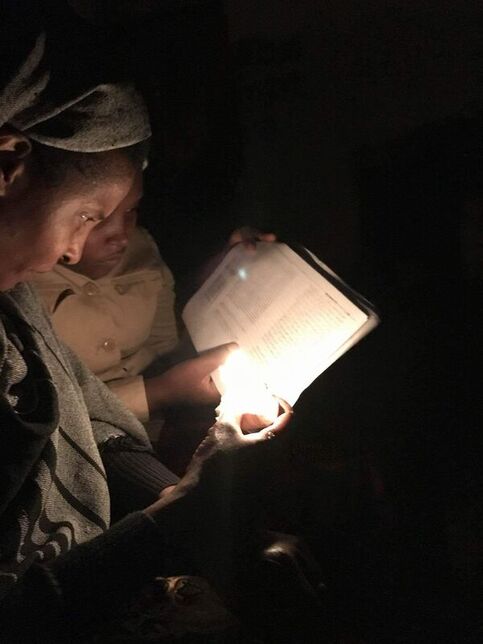|
|
Tish'a beAbh Evening Service
|
|
- Personal
-
JUDAISM
- Judaism - Introduction
-
Jewish History
>
- Paleo Hebrew
- The Pentateuch
- Stories of Creation
- Stories of the Flood
- J and E compared
- Priestly Writings
- Prophets of Israel and Judah
- Biblical Poetry
- Hellenism and the Septuagint
- Flavius Josephus
- The Dead Sea Scrolls
- Midrash
- Oral Torah and Talmud
- Origins of Christian Anti-Jewish Attitudes
- Byzantine Jews Before the Advent of Islam
- Yannai
- Jews Under Islam
- Byzantine Jews After the Advent of Islam
- Qara'ites
- Saadia Gaon
- Saadia Gaon's Poem Telóf Tèlef
- Salmón ben Yeruḥám
- Hasdai ibn Shaprut
- Yoséf ibn Abiṭúr
- Andalusian Poetry
- Samuel haNagîd and Ibn Gabirol
- Christian-Jewish Polemics
- The Crusades and Maoz Tzur
- Rashi
- The Tosafists
- Yehuda haLevi
- Ritual Murder and Blood Libel
- The Ḥasidé Ashkenaz
- Toledot Yeshu
- Moses Maimonides, Philosopher
- Moses Maimonides, Rabbi, Leader, Physician
- Abraham Maimonides
- Maimonidean Controversies
- Host Desecration Libels
- The Barcelona Disputation
- Qabbala and the Zohar
- The Cairo Geniza
- The New Sephardi Identity
- David Reubeni and Shelomo Molkho
- Shabbatai Tzevi
- Da Costa and Spinoza
- Yiddish Texts
- Ḥasidism
- The Jewish Enlightenment
- Modern Jewish Thinkers
- Jewish Thought >
- Jewish Law >
- Scripture
-
Liturgy
- Daily Prayers
- Shabbat >
- Rosh Ḥodesh (New Moon)
- Shabbat Rosh Ḥodesh >
- Shabbat Zakhor
- Purim
- Passover/Pesach >
- Omer Counting
- Shabu'oth >
- Tish'a beAbh Evening Service
- The Month of Elul
- Rosh haShana (New Year) >
- Shabbat Teshubá
- Yom Kippur
- Sukkot (Festival of Booths) >
- Sheminí ʻAṣèreth
- Simḥàt Torah
- Ḥanukka >
- CHRISTIANITY
- ISLAM
- (DIS)COURSES
-
OTHER LANGUAGES
- UGANDA
- Contact
- Personal
-
JUDAISM
- Judaism - Introduction
-
Jewish History
>
- Paleo Hebrew
- The Pentateuch
- Stories of Creation
- Stories of the Flood
- J and E compared
- Priestly Writings
- Prophets of Israel and Judah
- Biblical Poetry
- Hellenism and the Septuagint
- Flavius Josephus
- The Dead Sea Scrolls
- Midrash
- Oral Torah and Talmud
- Origins of Christian Anti-Jewish Attitudes
- Byzantine Jews Before the Advent of Islam
- Yannai
- Jews Under Islam
- Byzantine Jews After the Advent of Islam
- Qara'ites
- Saadia Gaon
- Saadia Gaon's Poem Telóf Tèlef
- Salmón ben Yeruḥám
- Hasdai ibn Shaprut
- Yoséf ibn Abiṭúr
- Andalusian Poetry
- Samuel haNagîd and Ibn Gabirol
- Christian-Jewish Polemics
- The Crusades and Maoz Tzur
- Rashi
- The Tosafists
- Yehuda haLevi
- Ritual Murder and Blood Libel
- The Ḥasidé Ashkenaz
- Toledot Yeshu
- Moses Maimonides, Philosopher
- Moses Maimonides, Rabbi, Leader, Physician
- Abraham Maimonides
- Maimonidean Controversies
- Host Desecration Libels
- The Barcelona Disputation
- Qabbala and the Zohar
- The Cairo Geniza
- The New Sephardi Identity
- David Reubeni and Shelomo Molkho
- Shabbatai Tzevi
- Da Costa and Spinoza
- Yiddish Texts
- Ḥasidism
- The Jewish Enlightenment
- Modern Jewish Thinkers
- Jewish Thought >
- Jewish Law >
- Scripture
-
Liturgy
- Daily Prayers
- Shabbat >
- Rosh Ḥodesh (New Moon)
- Shabbat Rosh Ḥodesh >
- Shabbat Zakhor
- Purim
- Passover/Pesach >
- Omer Counting
- Shabu'oth >
- Tish'a beAbh Evening Service
- The Month of Elul
- Rosh haShana (New Year) >
- Shabbat Teshubá
- Yom Kippur
- Sukkot (Festival of Booths) >
- Sheminí ʻAṣèreth
- Simḥàt Torah
- Ḥanukka >
- CHRISTIANITY
- ISLAM
- (DIS)COURSES
-
OTHER LANGUAGES
- UGANDA
- Contact


